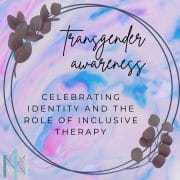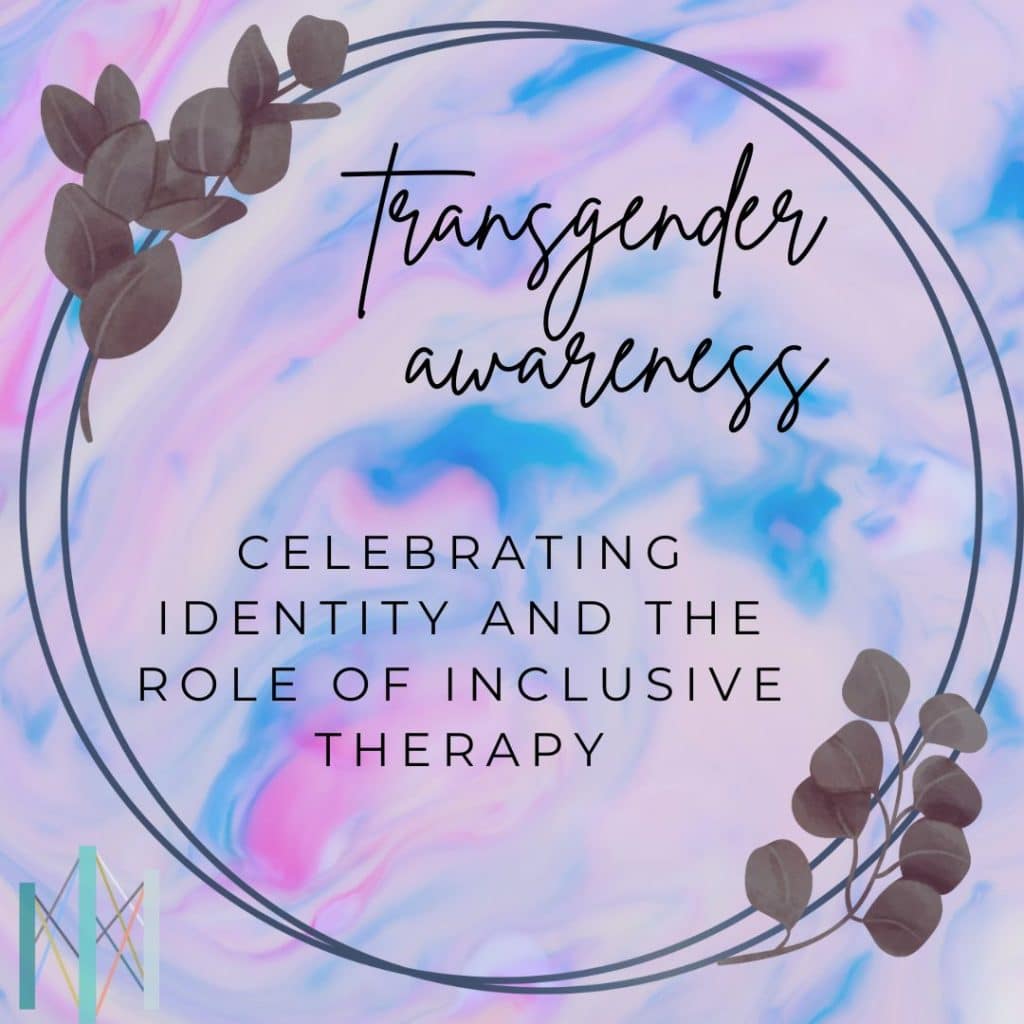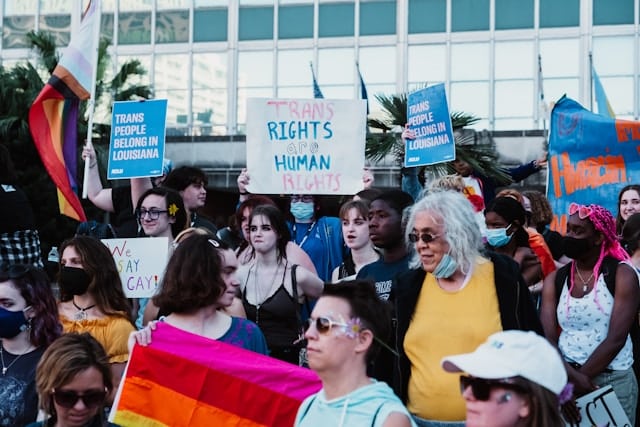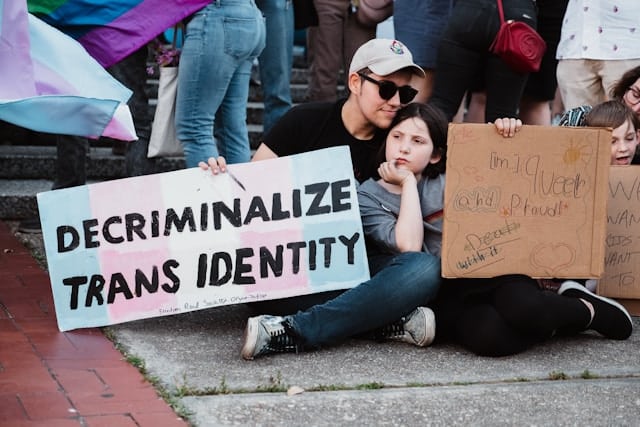

Transgender Awareness Month, observed throughout November, originated as a way to celebrate and uplift the trans community while promoting education on transgender issues. It seeks to raise visibility for transgender and non-binary individuals, address misinformation, and advocate for policies that protect trans rights. In a world where trans people still face higher rates of discrimination, violence, and mental health challenges, Trans Awareness Month is a reminder of the importance of allyship and public advocacy in creating a safer, more inclusive society.
Beyond raising awareness, this month emphasizes the importance of recognizing the full humanity of trans individuals, whose lives and stories often intersect with broader issues of race, socioeconomic status, and disability. For trans people, especially trans people of color, navigating these layers of identity can involve unique stressors that significantly impact mental health. This is where intersectional therapy can be transformative. By acknowledging the intersecting experiences of each individual, therapists can address the compounded impacts of transphobia, racism, and other systemic barriers on mental health.
Transgender Awareness Week: Amplifying Voices and Advocating for Mental Health
Transgender Awareness Week, observed from November 13 to 19, is the focal week of Trans Awareness Month, bringing a surge of community-led events designed to educate and build empathy. This week focuses on storytelling, community events, and advocacy campaigns that emphasize the challenges and triumphs of trans people. Often, these events serve as a critical space for trans people to share their experiences with the broader public, contributing to more accurate and nuanced portrayals in the media.
The week also highlights the importance of mental health awareness within the trans community. Studies have shown that trans individuals face disproportionately high rates of mental health challenges, including depression and anxiety, which are often exacerbated by discrimination, violence, and lack of access to gender-affirming care. Awareness events during this week encourage allies, families, and communities to recognize the value of mental health support, offering a space to discuss the role of therapy in fostering resilience and self-acceptance.
Transgender Day of Remembrance: Honoring Lives Lost and Emphasizing the Need for Mental Health Support
Transgender Day of Remembrance (TDOR), held on November 20, concludes Transgender Awareness Week with a powerful and solemn reminder of the violence trans individuals, especially trans women of color, continue to face. Established in 1999 by activist Gwendolyn Ann Smith to honor Rita Hester, a Black transgender woman who was murdered in 1998, TDOR is a time for the community to gather, hold vigils, and remember those who have lost their lives to anti-trans violence. Reading the names of those who were taken too soon often stirs a renewed commitment to advocate for justice, safety, and peace for the trans community.
Beyond honoring those lost, TDOR is a call to action. Mental health professionals play a crucial role in helping those affected by the trauma of these losses, often providing spaces for grieving and healing that are desperately needed in the face of such tragedies. Therapists who are attuned to these needs can help clients process the effects of transphobia and loss while guiding them toward resilience. Moreover, TDOR is a reminder of the need for therapeutic practices that not only validate trans experiences but also encourage healing through community support and self-care.
The Role of Transgender Therapists in the Mental Health Field
Transgender therapists bring invaluable perspectives to the field of mental health. Their lived experiences enable them to provide empathetic, affirming care for trans clients who may face barriers in accessing culturally competent therapy. For many trans clients, working with a trans therapist can create a safer and more validating environment, free from the burden of having to explain their experiences or educate their therapist on fundamental aspects of trans identity. Transgender therapists are uniquely positioned to understand the nuances of their clients’ experiences, offering insights and coping strategies rooted in personal experience and empathy.
Additionally, trans therapists contribute to the broader mental health field by advancing more inclusive and intersectional approaches to therapy. They are often pioneers in promoting techniques that account for the whole person, integrating aspects like social identity, community, and cultural background into therapeutic practice. By advocating for gender-affirming mental health practices and challenging outdated, pathologizing models, trans therapists play a critical role in evolving the standards of care for all clients, not just those who identify as trans.
Intersectional Therapy: Seeing the Whole Person
Intersectional therapy is essential for trans clients, as it recognizes the complexity of their experiences and the multiple systems of oppression they may encounter. For example, a Black trans woman might navigate both transphobia and racism daily, which can compound her experiences of discrimination and impact her mental health. Intersectional therapy validates these layers of identity and the ways they intersect, offering a framework that acknowledges trans clients as whole individuals rather than focusing solely on gender identity.
Therapists who practice intersectional therapy can help clients explore their identities in a nuanced way, addressing how factors like race, socioeconomic status, disability, and sexual orientation influence their mental health. This approach fosters self-understanding and resilience by allowing trans clients to see themselves in a holistic light, not just as individuals navigating gender identity but as people with rich, multifaceted lives.
Creating Safe, Affirming Spaces for Trans Clients
For therapy to be truly effective, it must be an affirming space where trans clients feel safe to explore their identity and experiences. An affirming therapist validates a client’s gender identity without judgment, creates a space for open discussion about challenges and successes, and provides guidance on self-care and resilience. This approach can empower clients to build self-acceptance, resilience, and a positive sense of self that transcends external prejudice.
Search our therapist directory to find the therapist who is right for you. Or contact us today with any questions.
You Might Also Like to Read:
- The Intersection of Identity and Mental Health: Addressing Unique Challenges in LGBTQ+ Therapy
- Intersex, Neuroqueer and Transmasculine Mental Health: Embracing Diversity and Addressing Challenges
- An Intersectional Perspective on ADHD




